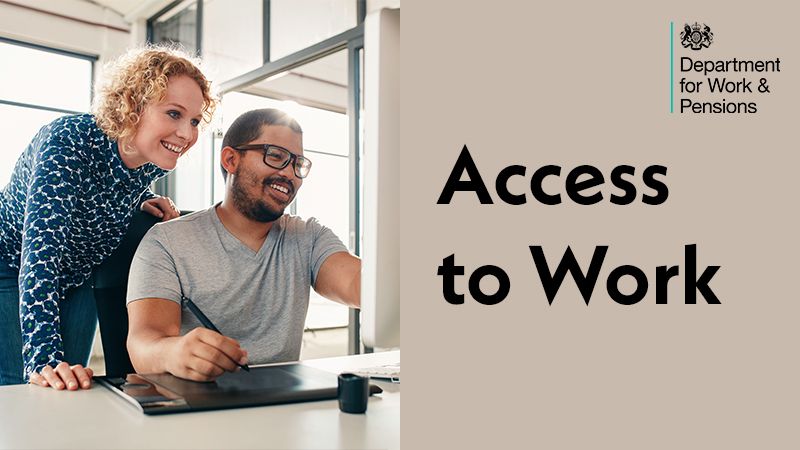ADHD Guide: Everything You Need to Know about the 'Access to Work' Scheme
Access to Work is a government initiative that provides financial support for people with long-term health conditions or disabilities, including ADHD.

Living with ADHD presents unique challenges, especially in work environments. However, the UK government’s Access to Work (AtW) grant offers substantial support to help individuals with ADHD thrive in their careers. This blog will guide you through everything you need to know about this program, from eligibility to application, and how it can transform your work life.
What is Access to Work?
Access to Work is a government initiative that provides financial support for people with long-term health conditions or disabilities, including ADHD. The grant helps with costs related to starting work, staying in work, and transitioning to self-employment. This help can be pivotal in creating a work environment that supports the unique needs of individuals with ADHD.
In 2023/24, the grant offers up to £66,000 per year, covering a variety of resources, from practical equipment to mental health support. Despite the program’s potential benefits, only 1% of eligible individuals take advantage of it. This is a shocking statistic and shows how few people are even aware of the scheme.
Eligibility Criteria
To be eligible for the AtW grant, you must:
- Live in England, Scotland, or Wales (Northern Ireland has a different system).
- Have a long-term health condition or disability that affects your ability to work.
- Be 16 years or older.
- Be employed, self-employed, or about to start work. This includes entrepreneurs, freelancers, and those looking for work.
You cannot receive AtW if you:
- Live in the Channel Islands or Isle of Man.
- Are employed as a civil servant.
- Are engaged in unpaid work or volunteering.
Do I Need a Formal Diagnoses?
No, you don't need to be formally diagnosed with a condition or disability to be eligible to use the scheme. That means that if you suspect you have ADHD, and feel like it is impacting your ability to perform your job when compared to your colleagues, you can apply.
Practical Support Provided by Access to Work
Access to Work can fund various types of support tailored to the needs of individuals with ADHD. Here are some examples:
Focus & Task Management Tools:
- Laptops for mobility.
- Noise-canceling headphones.
- Apps for website and app blocking, like Freedom.
- Focus music apps such as Brain.fm.
Hyperactivity Management:
- Standing desks and under-desk treadmills.
- Fidget tools and exercise balls.
- Wobble boards and text-to-speech apps like Speechify.
Planning & Time Management:
- Visual timers (Forest, Tiimo).
- Smartwatches (Garmin, Apple).
- Task managers (Todoist, Asana).
- Habit trackers (Habitify).
Mental Health Support:
- ADHD coaching.
- Therapy (CBT).
- Support workers and mentoring.
Stress & Anxiety Relief:
- Stress balls and weighted blankets.
- Meditation apps (Calm, Breathwrk).
- Artificial sun alarm clocks.
- Money apps to reduce stress (Rule).
Ergonomic and Office Equipment:
- Ergonomic chairs.
- Multiple screens and large desks.
- Access to co-working spaces.
How to Apply
Applying for the Access to Work grant is straightforward and can take as little as 20 minutes if you have all the necessary information ready. You can apply online through the government website or by phone.
Application Requirements:
- Personal and contact details.
- Employment details (job title, type, duration, address).
- Description of your ADHD and how it affects your work.
- Current support and additional support needed.
After applying, an Access to Work assessor will contact you to discuss your circumstances and the type of support you require. Processing times vary, but applications are prioritised if you are starting a new job within the next four weeks.